2023福建省中考英语试卷及答案
目前了解,2023年福建省中考试卷及答案公布出炉啦!有关英语试题及答案有什么呢?为了方便大家学习借鉴,下面小编精心准备了2023福建省中考英语试卷及答案内容,欢迎使用学习!

2023福建省中考英语试卷及答案
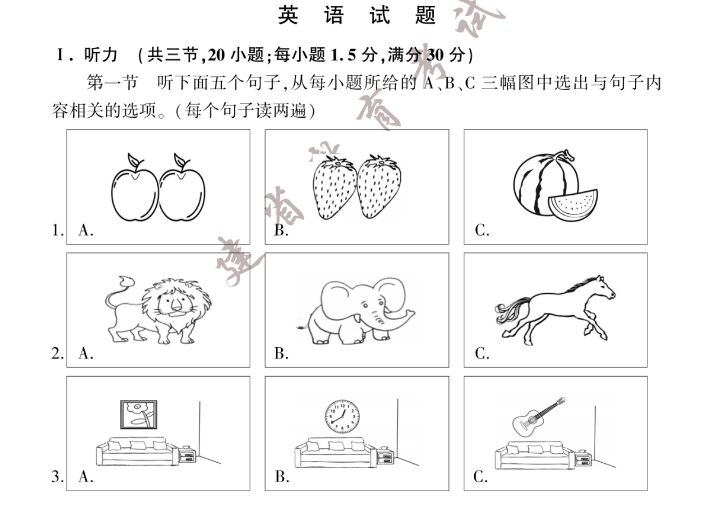
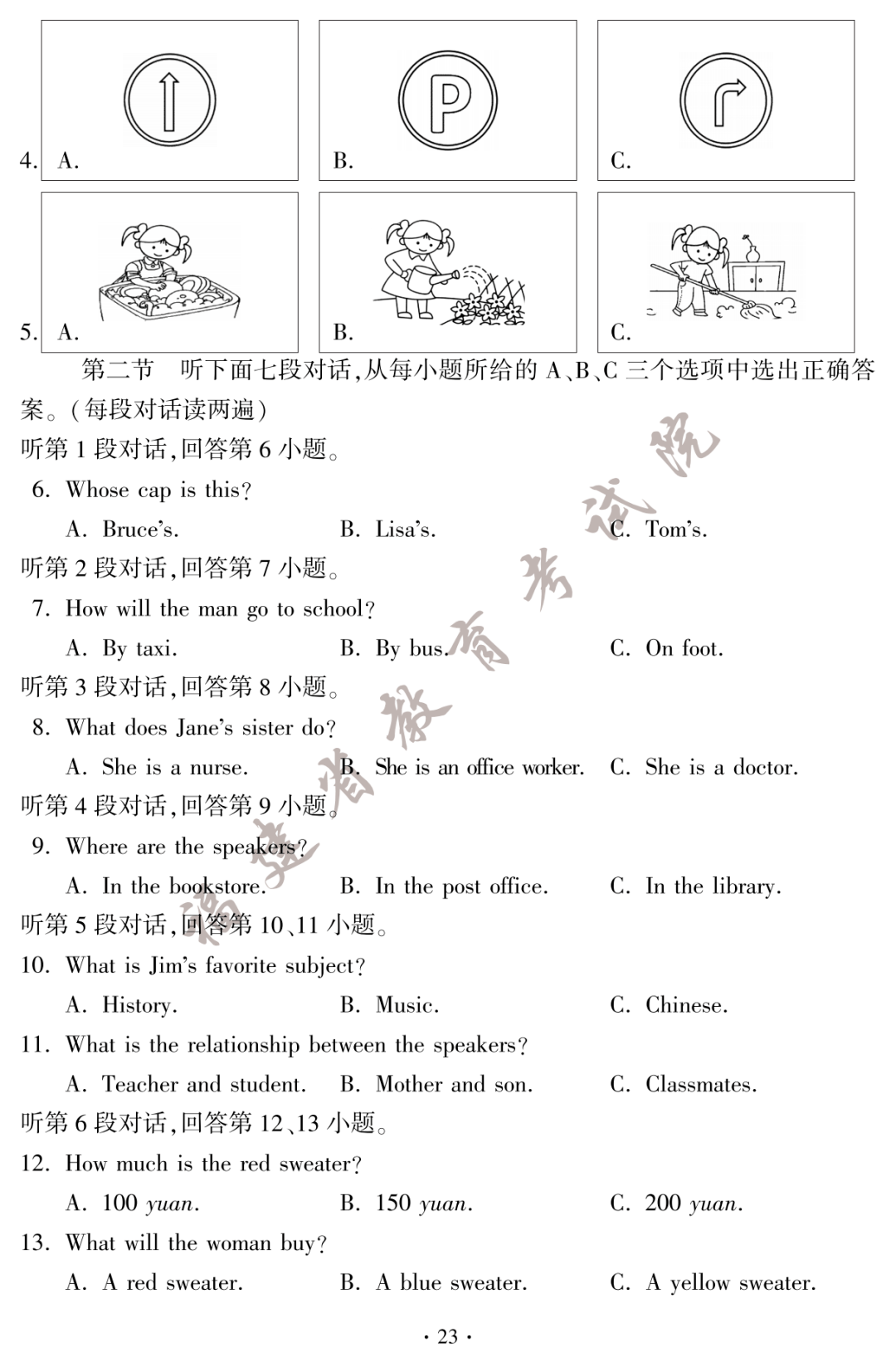
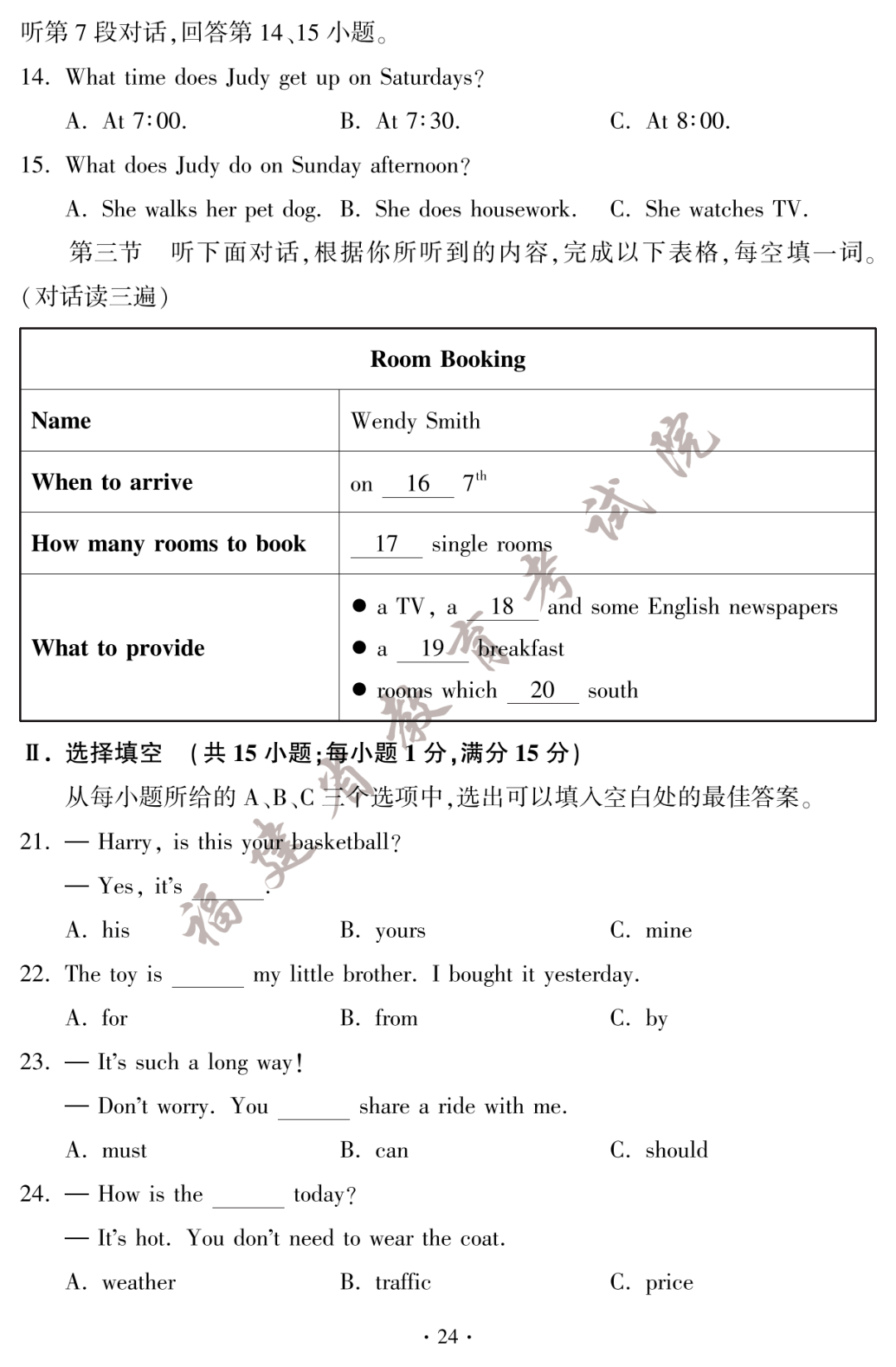
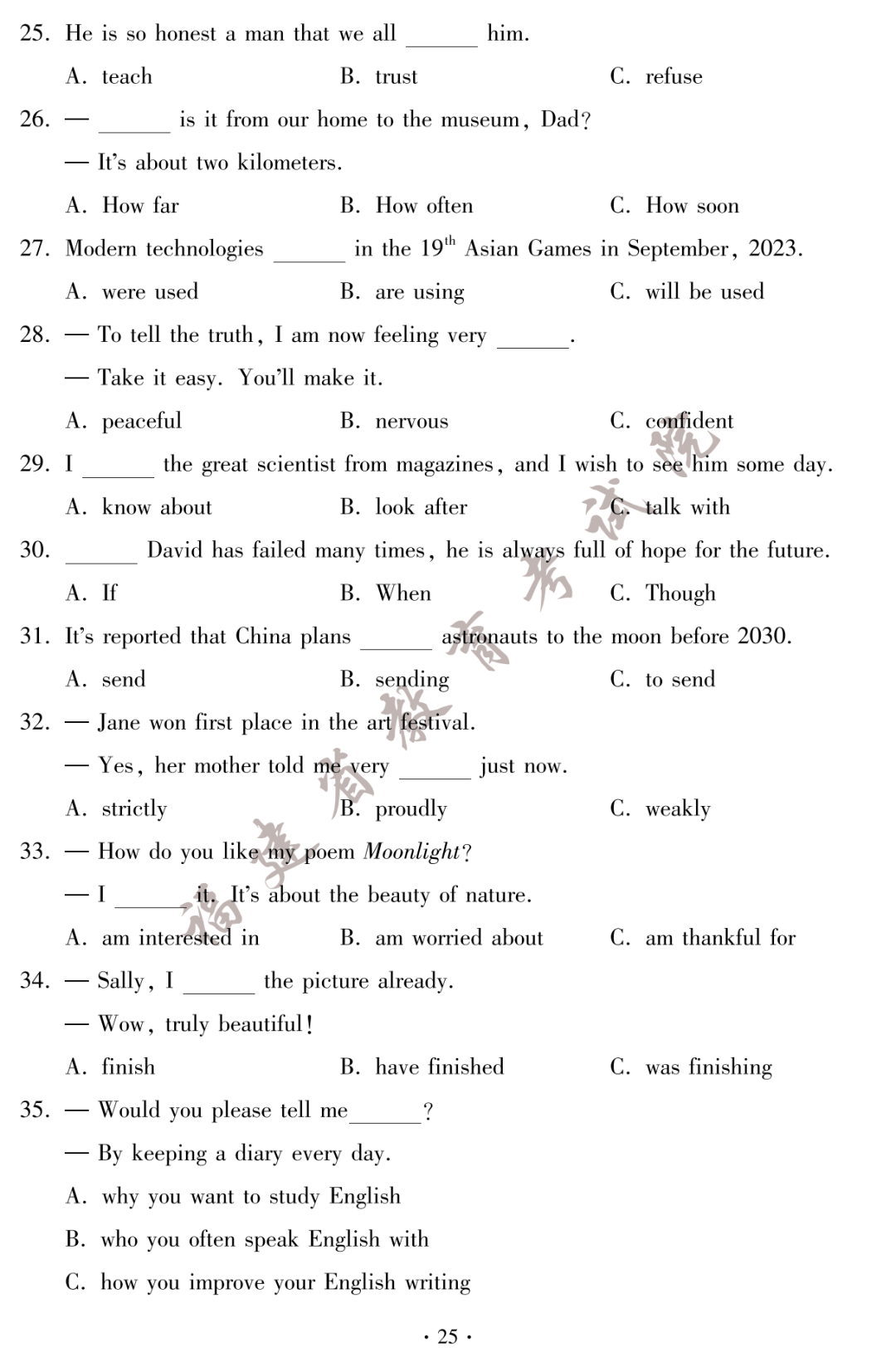
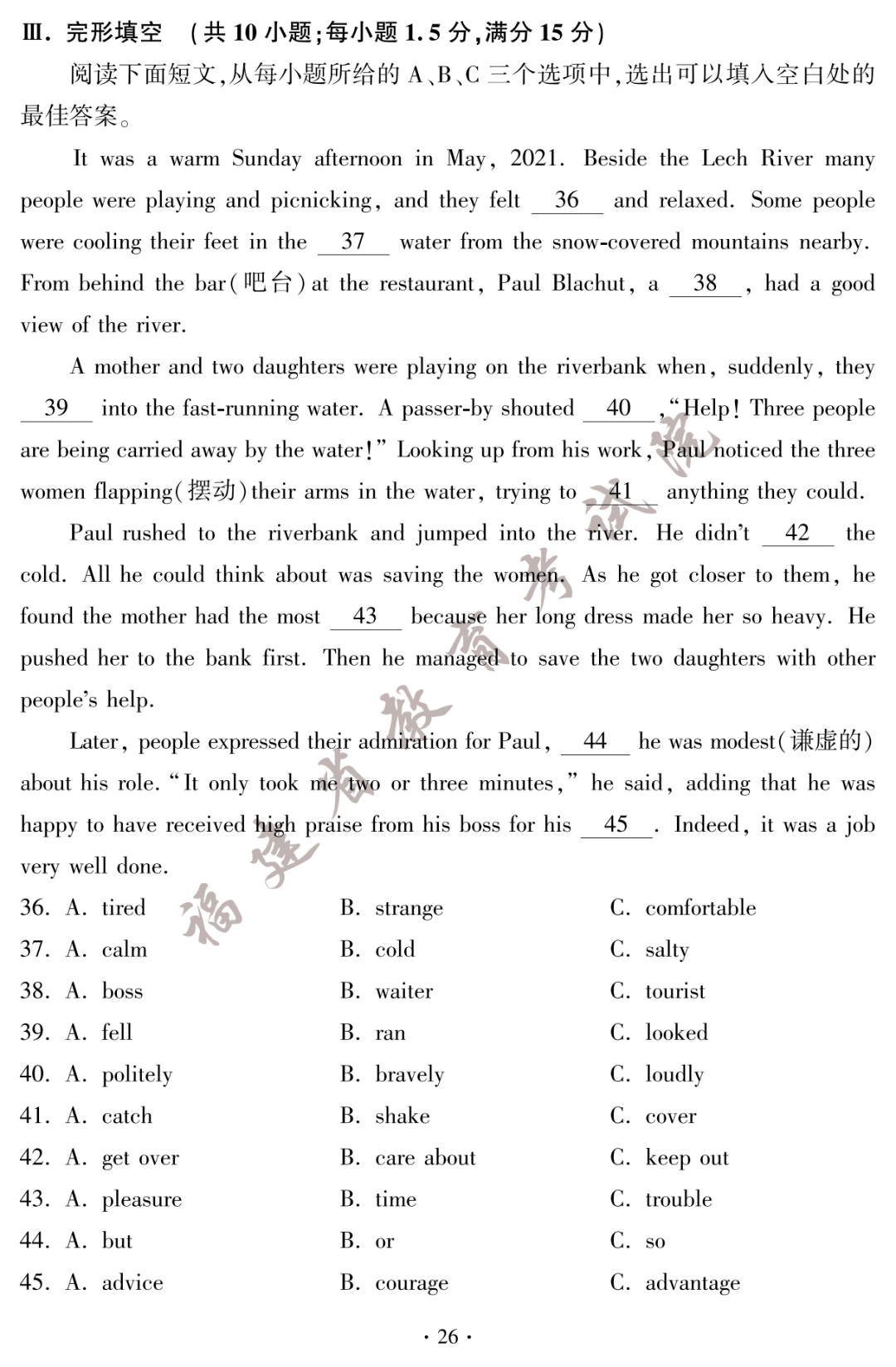
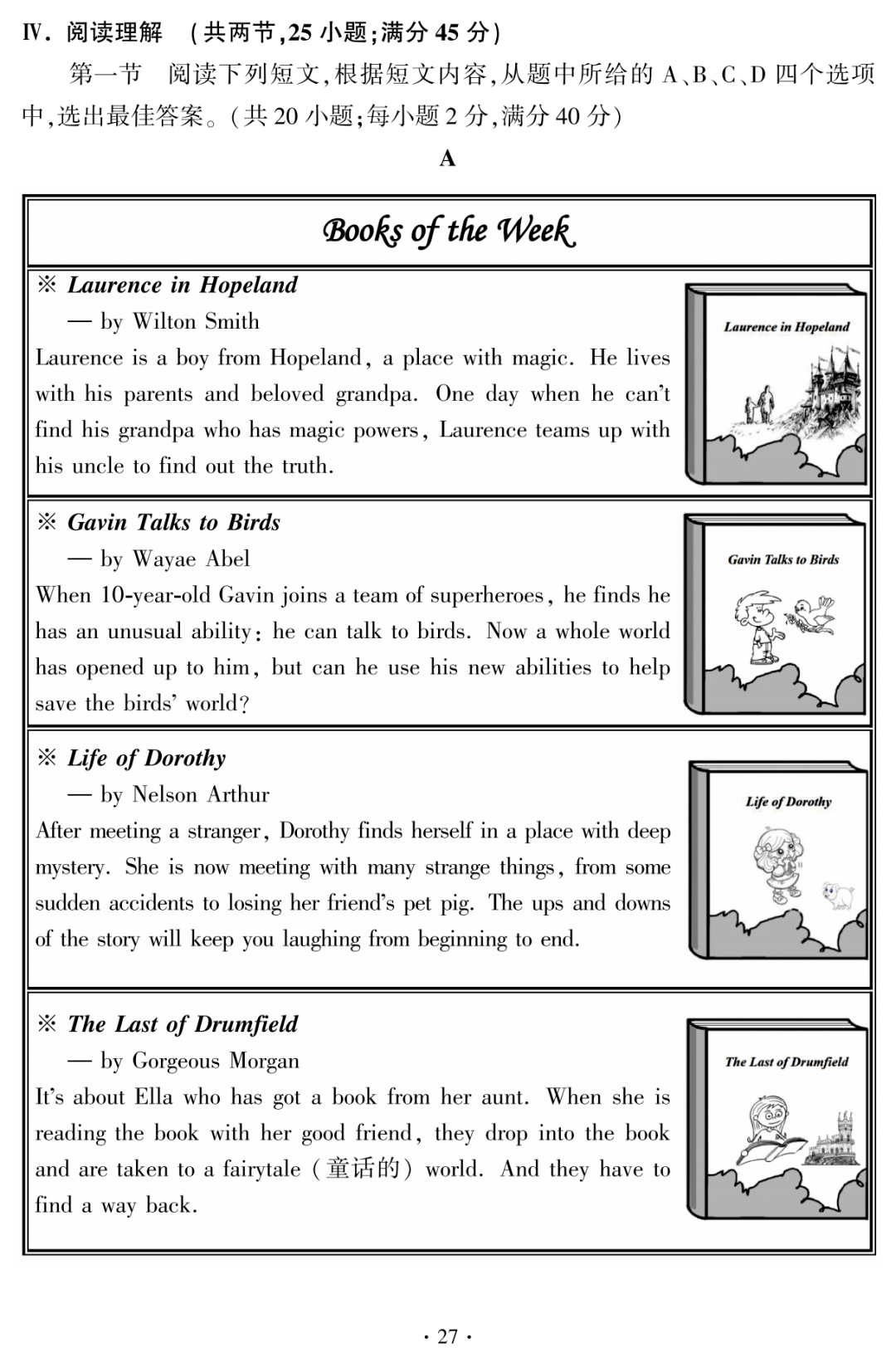
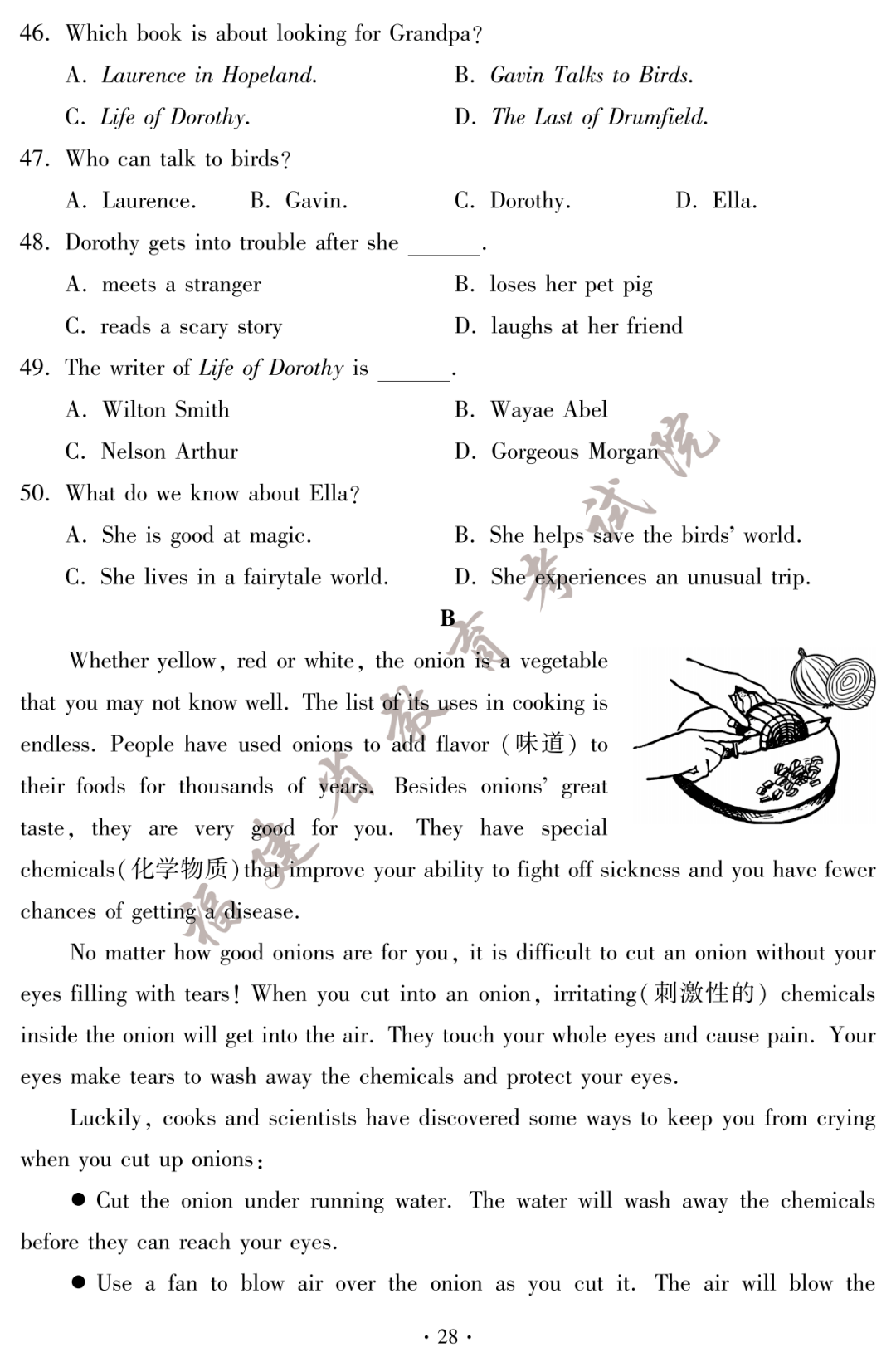
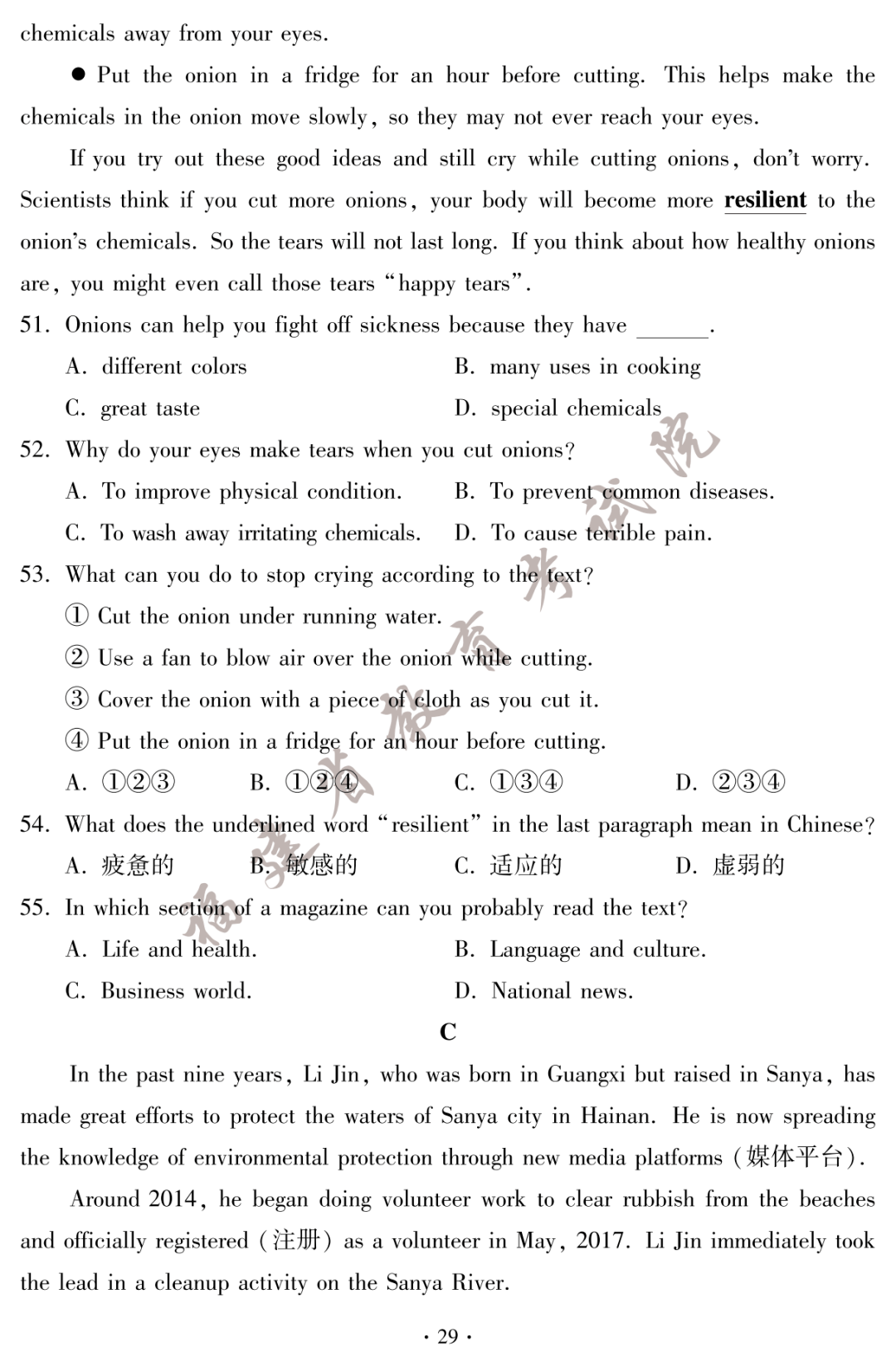
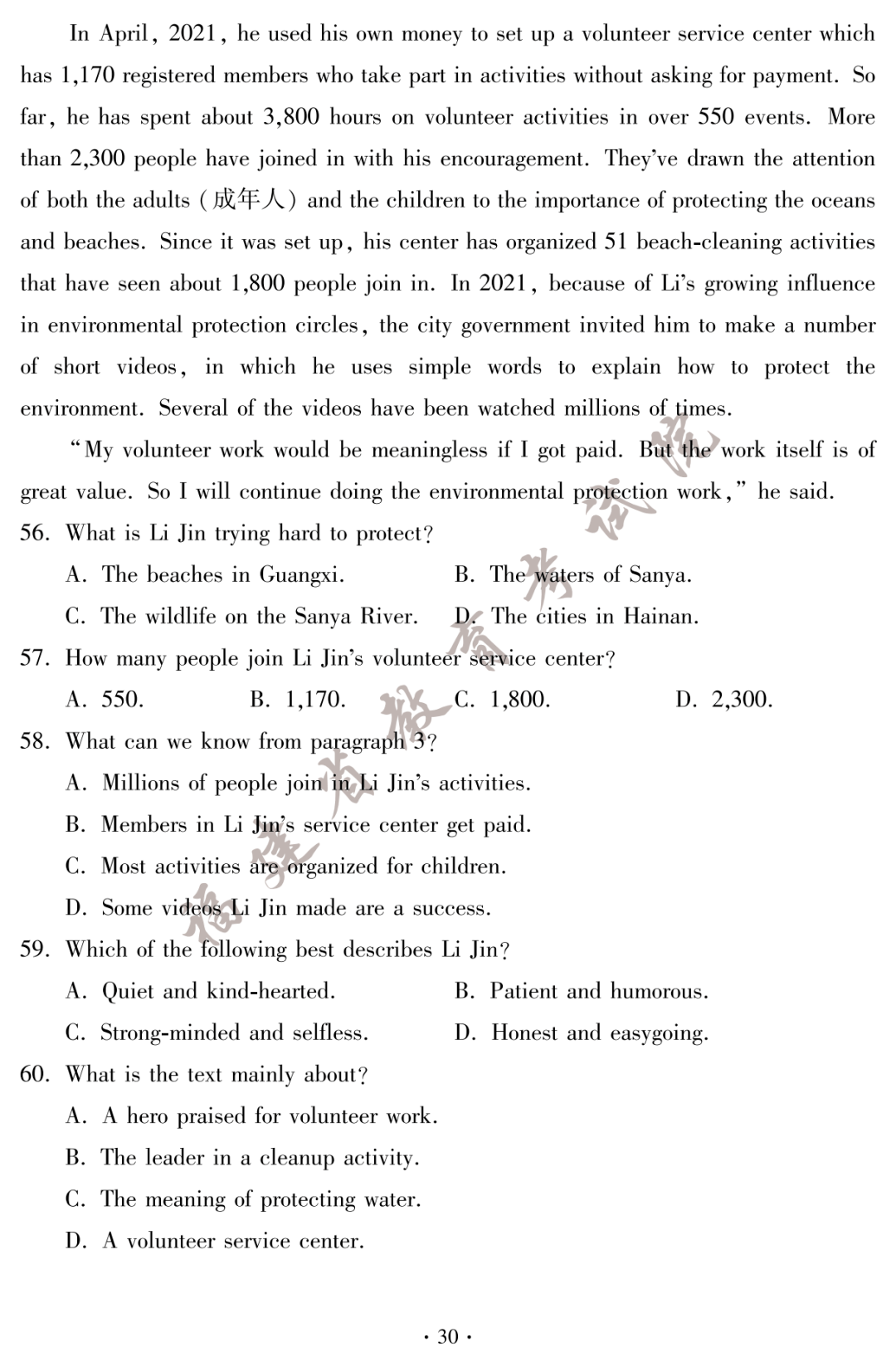
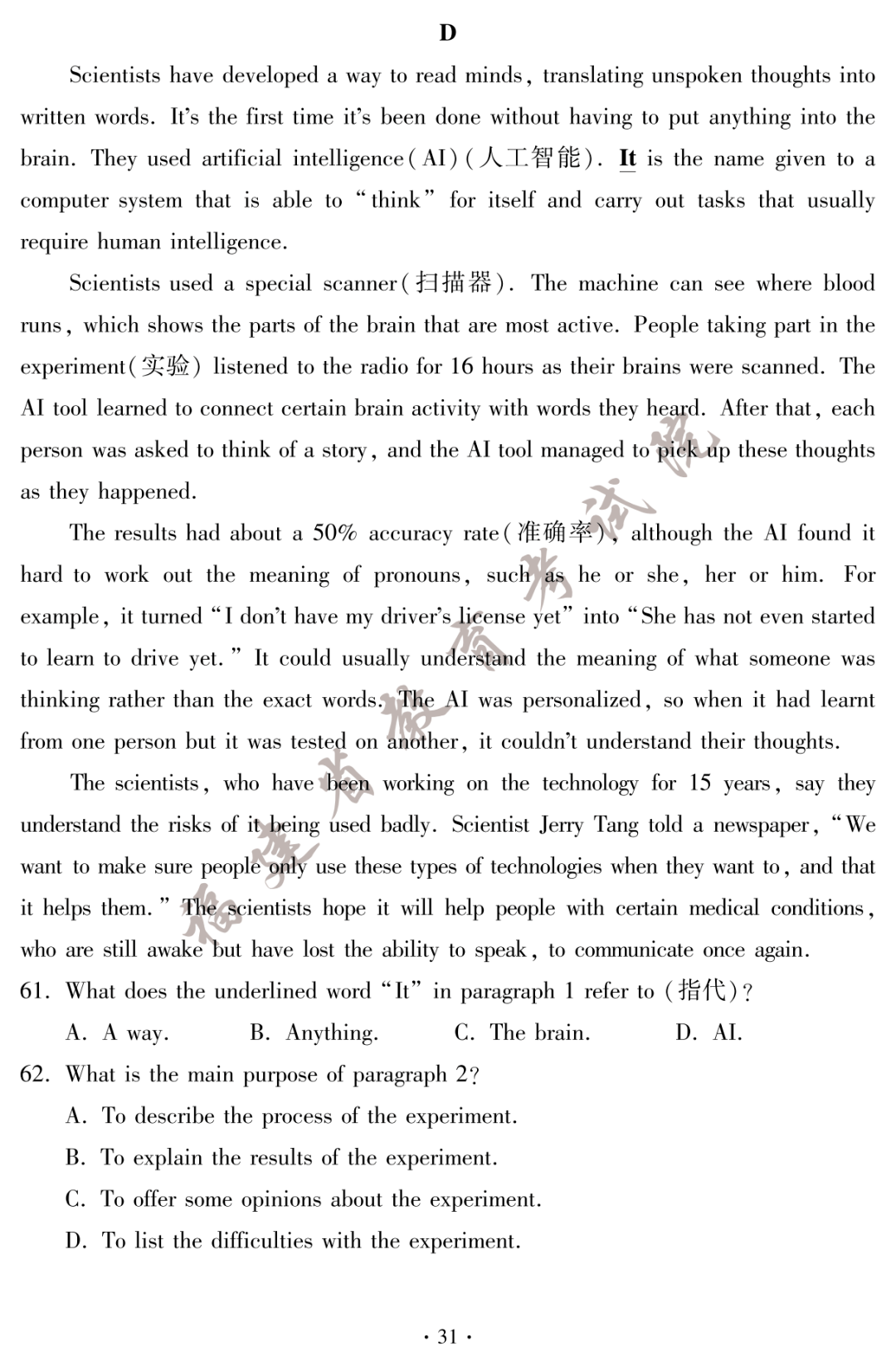
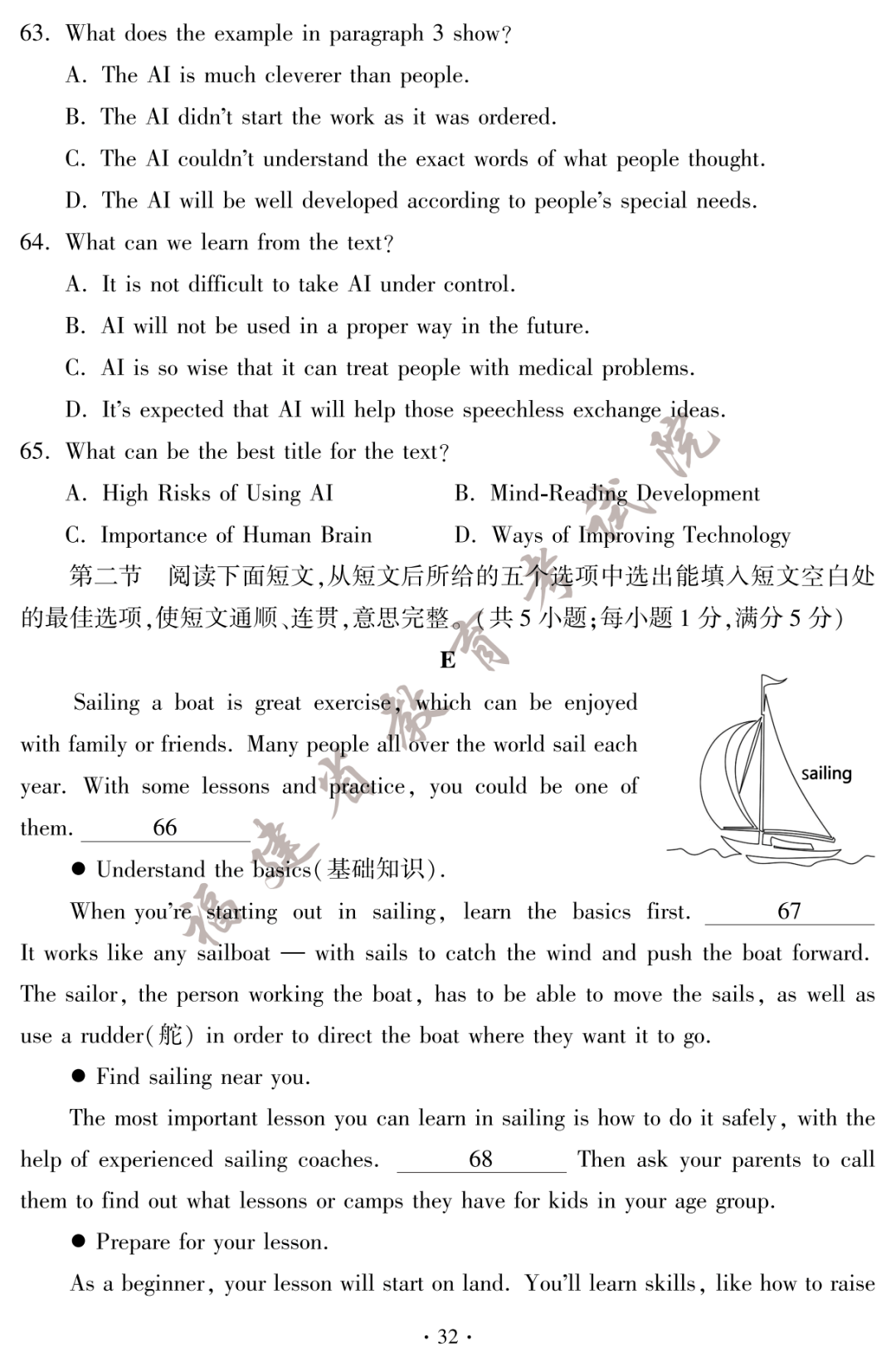
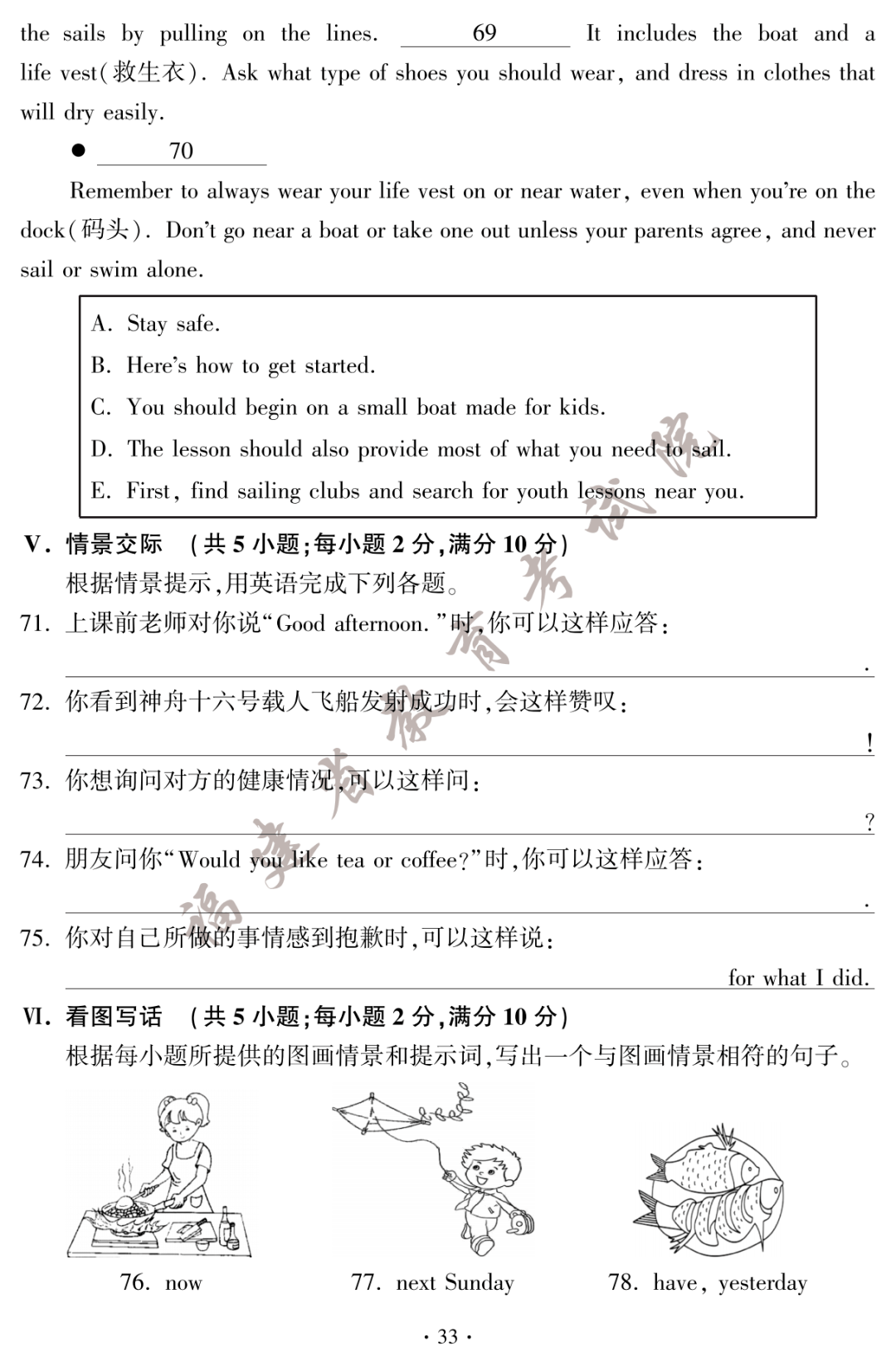
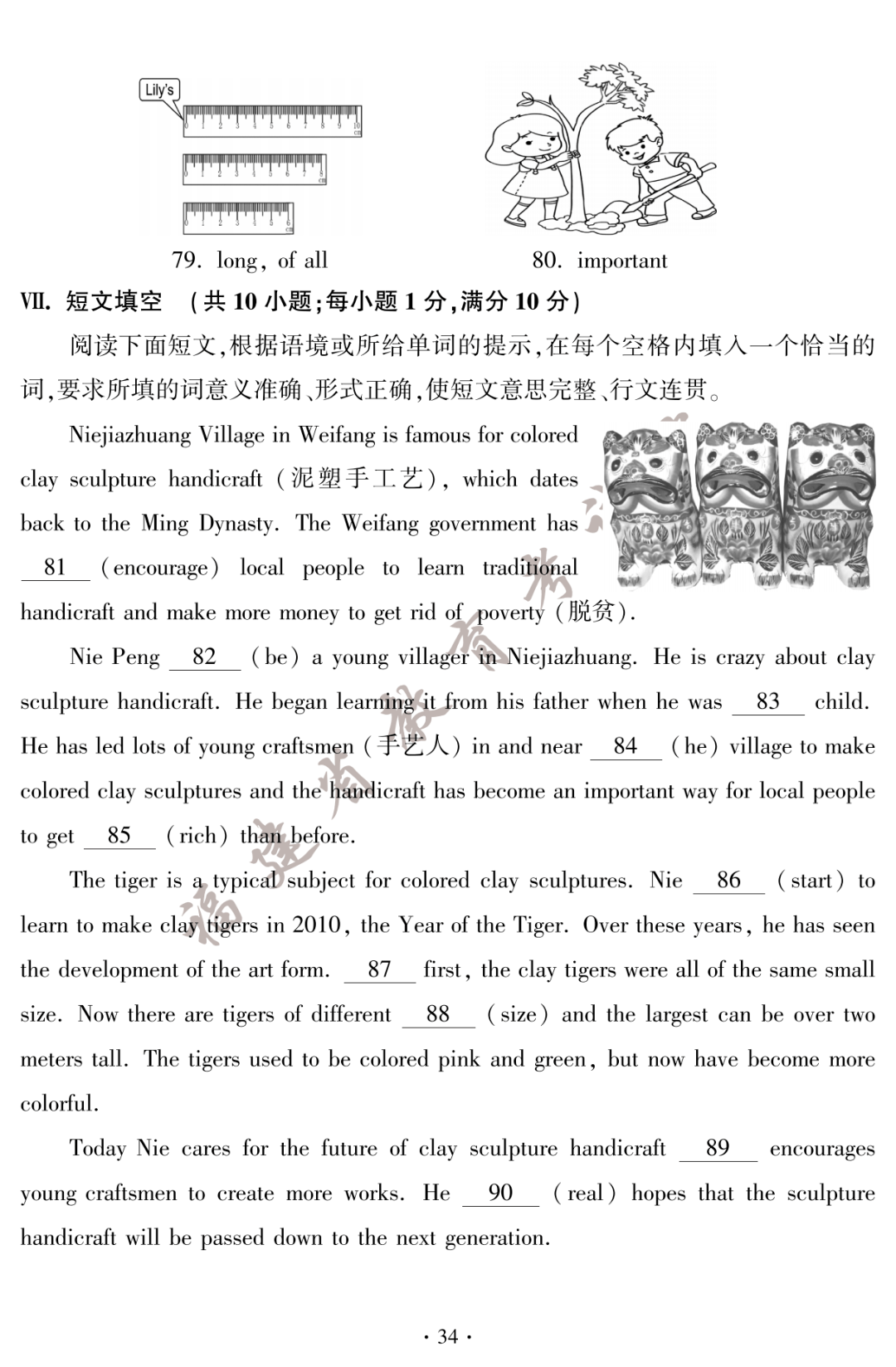
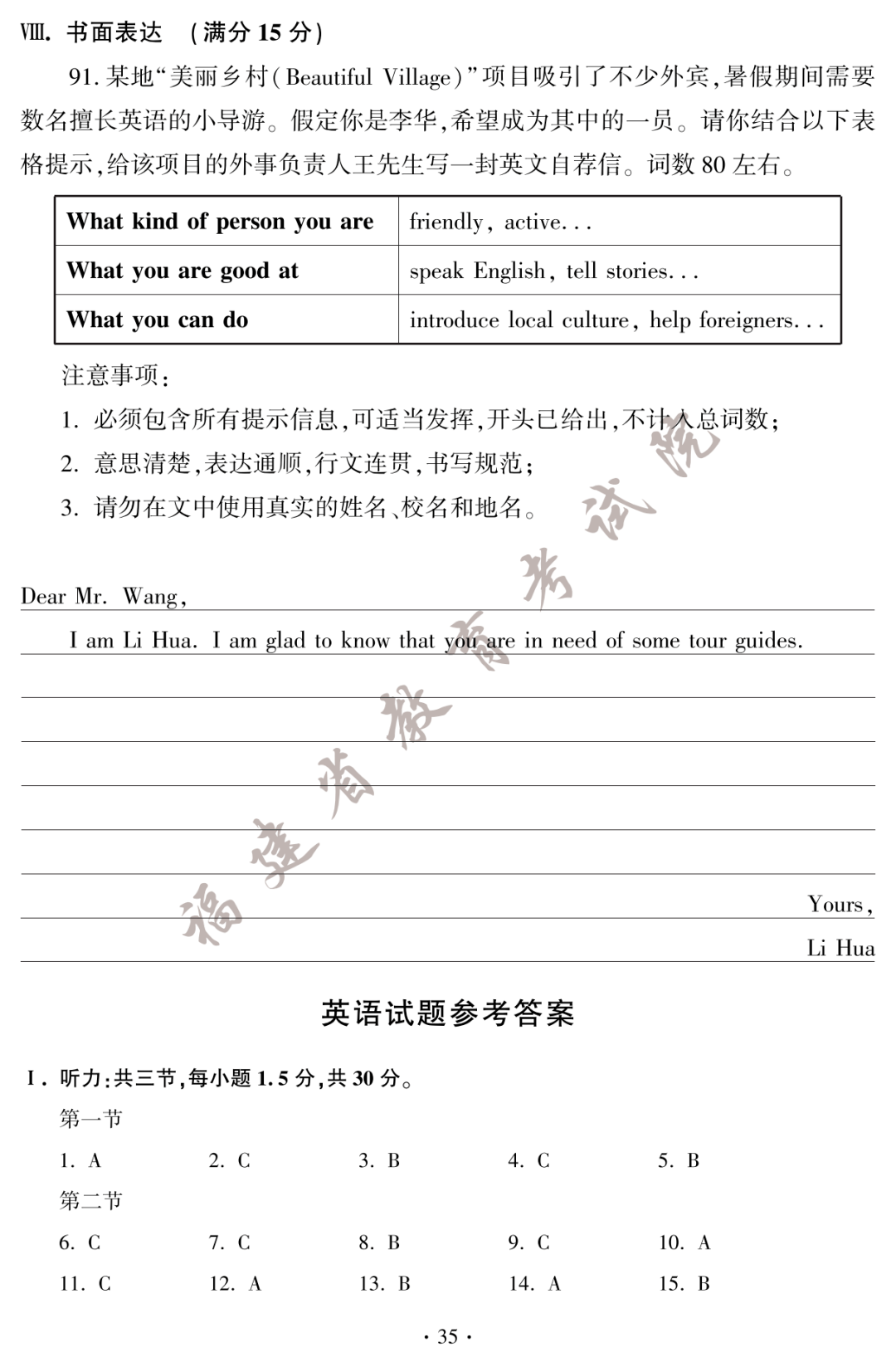
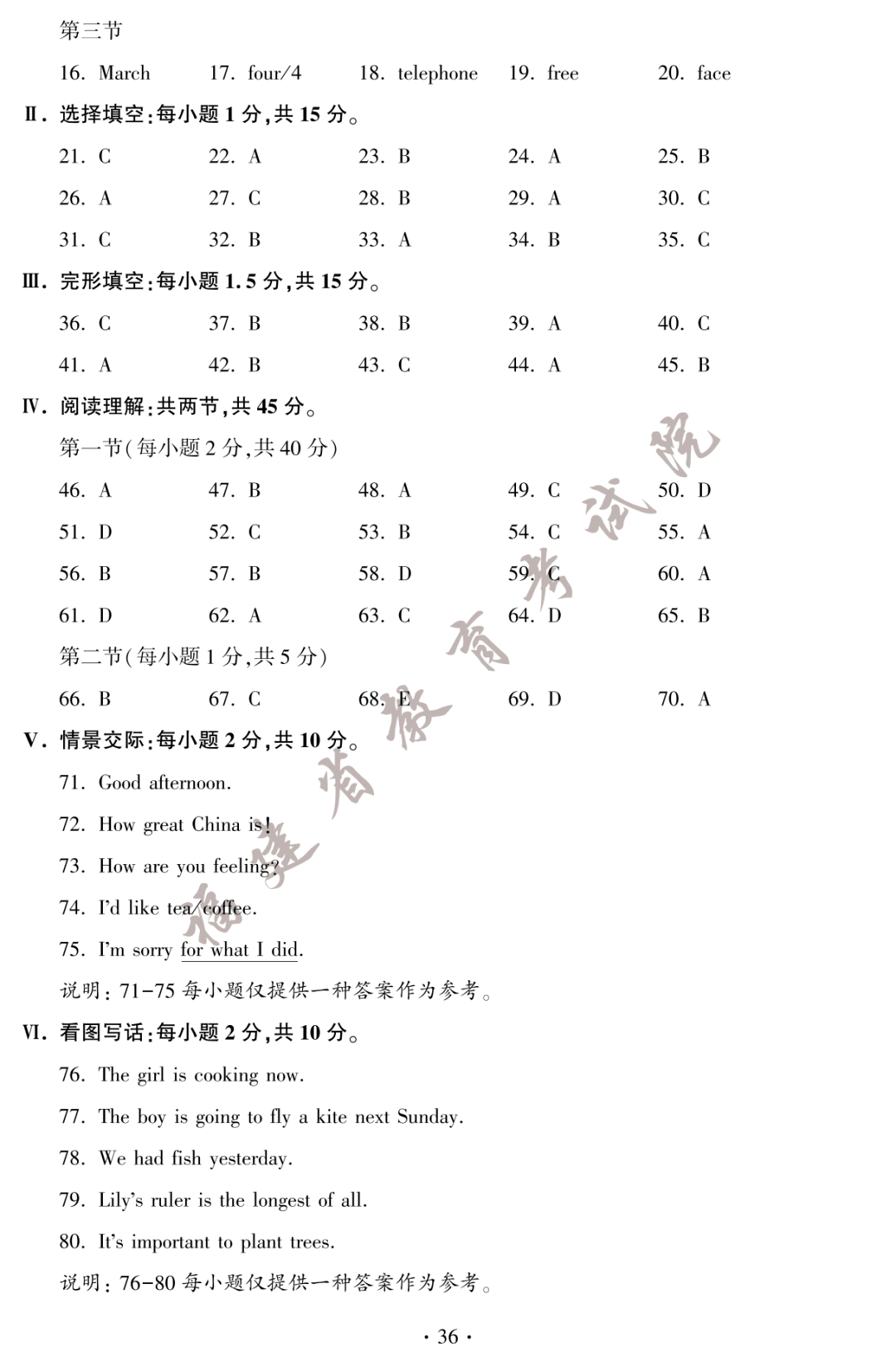
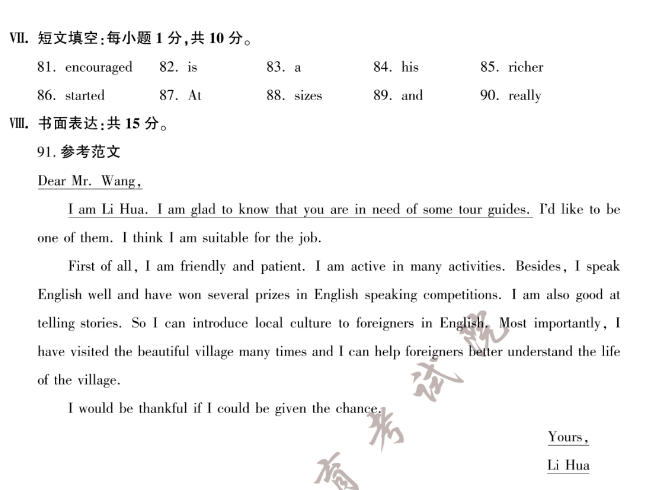
中考英语知识点归纳
1、must
(1)must 表示主观看法,意为“必须”。
如:
You must stay here until I come back。
Must I hand in my homework right now?
对must引导的疑问句,肯定回答为must,否定回答为needn’t 或don’t have to 。
如:
—Must I finish my homework?
—No, you needn’t。
(2)must也可以表示有把握的推测,意为“ 一定,肯定”,用于肯定句。
如:
The light is on, so he must be at home now。
其否定形式mustn’t表示“禁止,不许”。
如:
You mustn’t play with fire。
You mustn’t be late。
2、could
(1)can的过去式,意为“能、会”,表示过去的能力。
如:
He could write poems when he was 10。
(2)could在疑问句中,表示委婉请求的语气,此时could没有过去式的意思。
如:
Could you do me a favour?
—Could I use your pen?
—Yes, you can。(注意回答)
3、might
might为may的过去式。might表示推测时,表示可能性低于may(此时might没有过去式的意思),当请求讲时,比may的语气更委婉。
He is away from school。 He might be sick。
Might I use your dictionary?
4、can
(1)表示能力,一般译为“能、会”,尤其指生来具备的能力。
如:
She can swim fast, but I can’t 。
(2)表示许可,常在口语中。
如:
You can use my dictionary。
(3)表示推测,意为“可能”,常用于否定句和疑问句中,此时can’t译为“不可能”。
如:
—Can the news be true?
—No, it can’t be our teacher。 He is on a visit to the Great Wall。
初三英语语法知识
一. 介词by的用法
1. 意为“在……旁”,“靠近”。
Some are singing and dancing under a big tree. Some are drawing by the lake.
有的在大树下唱歌跳舞。有的在湖边画画儿。
2. 意为“不迟于”,“到……时为止”。
Your son will be all right by supper time.
你的儿子在晚饭前会好的。
How many English songs had you learned by the end of last term?
到上个学期末你们已经学了多少首英语歌曲?
3. 表示方法、手段,可译作“靠”、“用”、“凭借”、“通过”、“乘坐”等。
The monkey was hanging from the tree by his tail and laughing.
猴子用尾巴吊在树上哈哈大笑。
The boy’s father was so thankful that he taught Edison how to send messages by railway telegraph.
孩子的父亲是那么的`感激,于是他教爱迪生怎样通过铁路电报来传达信息。
4. 表示“逐个”,“逐批”的意思。
One by one they went past the table in the dark.
他们一个一个得在黑暗中经过这张桌子。
5. 表示“根据”,“按照”的意思。
What time is it by your watch?
你的表几点了?
6. 和take , hold等动词连用,说明接触身体的某一部分。
I took him by the hand.
我拉住了他的手。
7. 用于被动句中,表示行为主体,常译作“被”、“由”等。
English is spoken by many people.
英语被许多人说。(即“许多人讲英语。”)
二. 动名词(doing)
动名词相当于名词,在句子中可以做主语、宾语、表语、定语等。
1. 作主语
Fighting broke out between the South and the North.
南方与北方开战了。
2. 作宾语
Would you mind turning down your radio a little, please?
请问你介意调小一点收音机的音量吗?
3. 作表语
Babysister’s job is washing,cooking and taking care of the children.
保姆的工作是洗衣服,作饭和照看孩子。
4. 做定语
a washing machine 一台洗衣机
